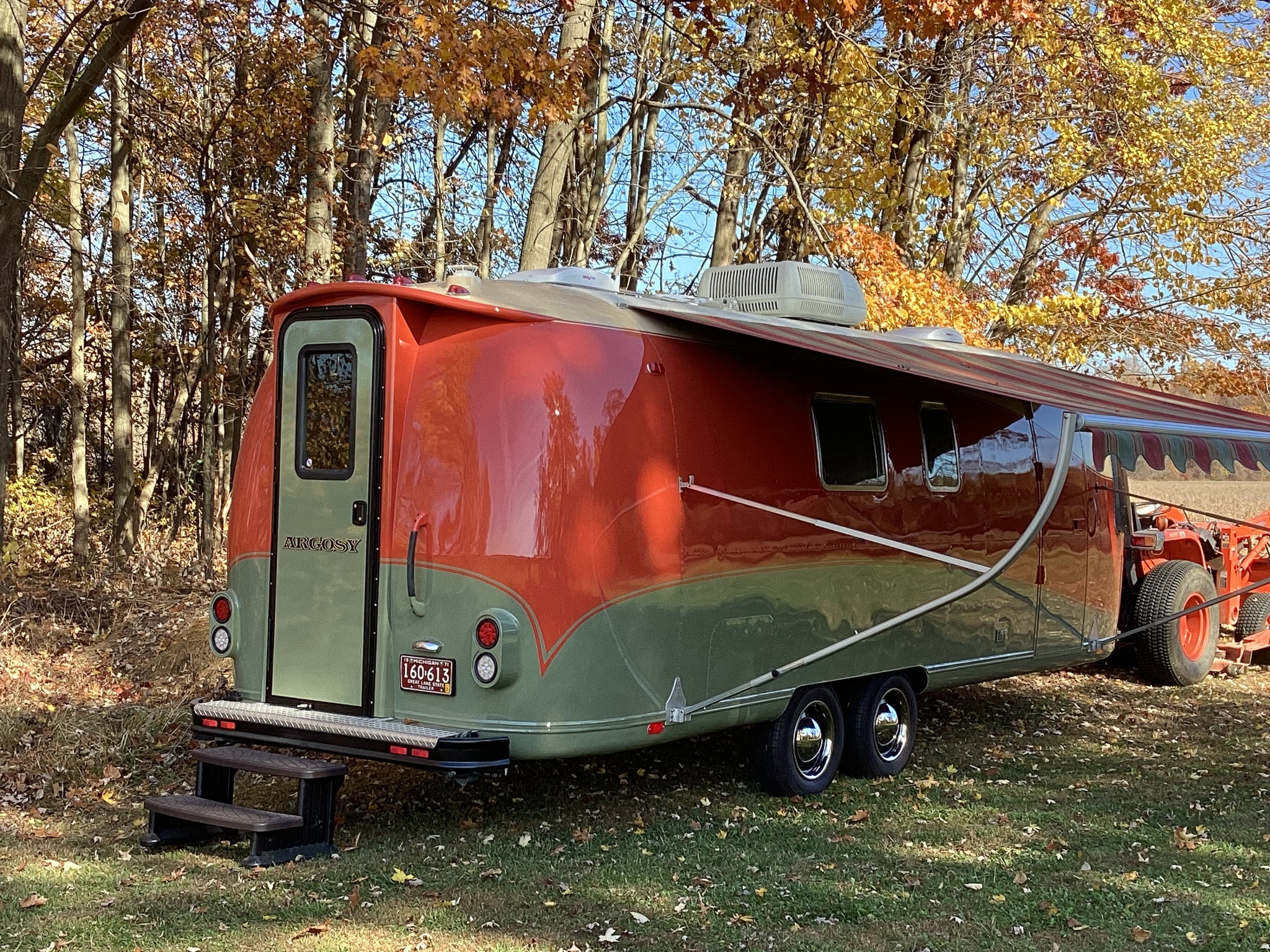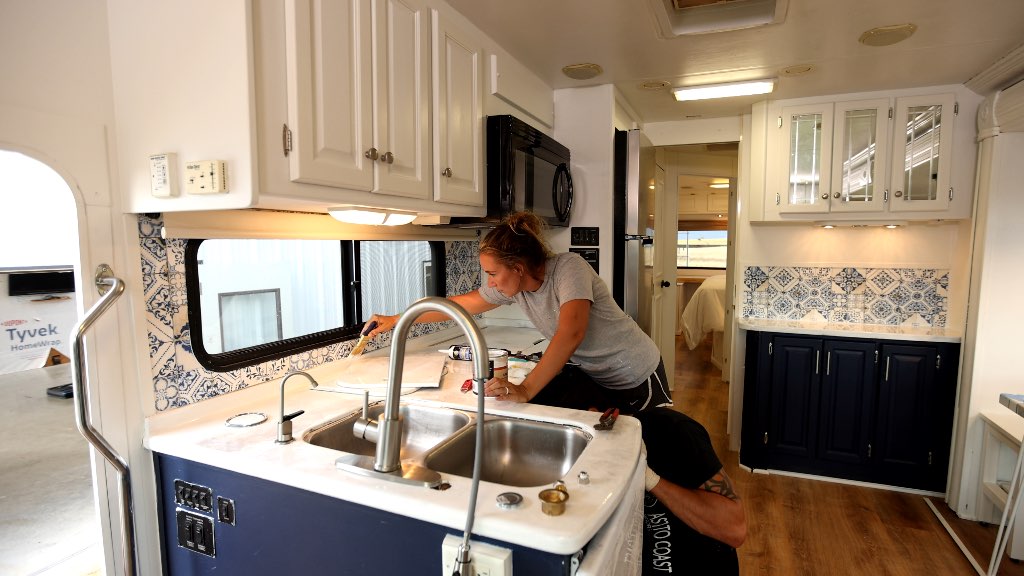Tech Q&A — May 2023
Dinghy Towing, Hot Circuits, Wi-Fi Boosters, and a SumoSprings Swap
Image Caption:
Towing a Dinghy
Q: We have a 2021 Fleetwood Flair 29-foot motorhome. What is the easiest car to flat tow behind my motorhome? What extra equipment do I need to do this?
—Laura Quinn, Fort Lauderdale, Florida
A: This is a complex subject, and I can’t cover all the intricacies in this format. Many extensive magazine articles have been written about this subject. The easiest car to tow is the lightest one, but it must be designed by its manufacturer to tow without transmission damage or other problems.
The March issue of RV Magazine contains the annual “Guide to Dinghy Towing,” which lists vehicles that are approved by their manufacturers for towing, and the necessary equipment and procedures to do so. You should have a good towing system, including lights, dinghy braking, a breakaway switch, a charging line (in most cases), and safety chains or cables, etc. Other accessories include guards to protect the finish on the front of the towed vehicle, battery disconnect switches, etc. Starting your homework with a Google search will answer many of your questions.
Brake Control Question
Q: I have a Reese Echelon brake controller installed in a 2001 Ford Excursion SUV. It is pulling a 1995 Terry 30-foot trailer with two axles. Before I go on any trip, I check the settings on the brake controller and set them to the proper position/settings.
The problem is that after several hours of traveling, the controller is very touchy/aggressive and very sensitive when I apply the brakes. The next morning the brakes are fine, until after a few hours of traveling, then it is aggressive again and the wheels will lock up again. Is the problem with the controller or the trailer system?
—Tom Gate, Corona, California
A: We’re familiar with that effect of the brake controller getting aggressive after time on the road. It also happens with new brake controllers, though less frequently. Electronic circuits, when they start to fail, often act faulty when they warm up and get hot, and then revert to normal operation when they cool off. It appears that this is what is happening.
Electric brakes don’t behave like this. You can have an RV shop test the controller amp output when it is cool and when it is acting up, but then you have the hassle of driving for several hours for a second test. That model controller is an older unit that is discontinued. You’re probably better off to just replace it with a new unit.
Switching to SumoSprings?
Q: We have a 2019 Coachmen Leprechaun 260DS on a Chevy 4500 Express Cutaway chassis. The coach came equipped with Firestone Ride Rite airbags on the rear axle. I’ve struggled with this system from the get-go. It says the maximum pressure is 100 psi, which I’ve never gone over. In fact, the most I’ve ever used is 75 psi, and that was with pulling our four-door Jeep JK Rubicon.
I’ve grown to hate this setup, and I’m considering removing the Firestone air system in favor of SumoSprings, at the very least to remove the guessing of the correct air pressure. The change out looks pretty direct, but I want to make sure it’s the right decision and not regret it.
—Daniel Hills, Covina, California
A: Before giving up on the Ride Rites, I suggest you try several test pressures in methodical steps—such as 25 psi, then 50, then 75, then 100—and see if you find a good compromise. Then if you find an approximate preferred pressure, try smaller adjustments between these, until you settle upon your favorite pressure.
You can also get an accessory controller designed for the airbags that mounts under the dash and has a small onboard compressor. This allows you to conveniently adjust pressure from the driver’s seat. SumoSprings are a quality product, but they don’t offer adjustability. So if you still can’t find a setting you like with your Firestone system, make the switch.
Wi-Fi Boosters
Q: What is the most affordable and reliable Wi-Fi system to have that can stream and assist with work from an RV?
—Kelly Creamer
A: Many RV campgrounds have fairly weak Wi-Fi signals because of the distances involved, plus some RVs have metal frames, etc., which further block signals. And there’s only so much bandwidth to go around from each RV park network. Experienced campers solve this by using Wi-Fi boosting antennas, and/or Wi-Fi amplifying repeaters.
Both Winegard and KING Controls offer a selection of quality Wi-Fi and cell-phone-signal boosters and antennas. You can see them at campingworld.com. An example of a lower priced antenna is the FBA_ALFA-ARSN19M Alfa Wi-Fi Booster SMA Omni-Directional antenna found at Amazon.
E-Bike Racks for Travel Trailer
Q: I am searching for a sturdy bike rack for our Winnebago Minnie 2500RL towed by a Ford F-150. I recently acquired an e-bike that weighs between 55–60 pounds. My first thought was to mount the carrier on the bumper of the trailer using a 2-inch receiver bolted to the bumper. It’s easy to access, mount, and secure the bike.
An exhaustive online search revealed that most carriers for RVs are approved for motorhomes and fifth-wheel trailers, but I couldn’t find any approved for tow-behind travel trailers.
One manufacturer described the reason their racks are not approved for travel trailers is that the micro sway at the back of the trailer will eventually cause the rack to fail and the bike (and rack) will end up as a road hazard for other drivers. They go as far as to say: “If you want to install a rack on the back of a trailer, use a product from another manufacturer.” They cited 100-plus incidents with their racks.
Please advise on a solution to this problem.
—Tom Miller, Madison, Wisconsin
A: There is a lot of flexing, swaying and vibration going on at the back of a travel trailer. Yes, there are a lot of people who have successfully carried items there, but the added weight of the e-bike is more than regular bikes, and I agree with the rack manufacturer—a bit of caution is a good idea.
I suggest either carrying it in the back of the truck, or if the bed is already full, consider a rooftop carrier on the truck. Or if you have room, mounting it at the front A-frame of the trailer.
Use of Hydraulic Jacks
Q: My question is when to use the hydraulic jacks on my 2003 Georgie Boy Pursuit motorhome, which I have just purchased from a private individual. The motorhome has two slides and is a 34-footer. Do the jacks need to be extended before putting the two slides out or after? Also, when I park the motorhome in my yard is it necessary to use the jacks? I park it on a gravel drive that is fairly level.
This will be my last RV as I’m 89 years young. I started with a tent trailer and have owned everything from a truck camper, Class C, numerous travel trailers, and fifth-wheels throughout the years since 1971.
—William “Bill” Weime, Sierra Vista, Arizona
A: First, let me congratulate you on your long-term commitment to the RV lifestyle and wish you many more adventures.
You should level the coach with the jacks every time before extending the slide-outs. You don’t need the jacks for parking during storage. Avoid parking for an extended period on sharp-edged rocks or in standing water and puddles.
Fridge Quits
Q: We have a Grand Design 390RK fifth-wheel trailer. I’m at a loss and so frustrated and stressed: The Norcold 2118 refrigerator has major issues and can’t be trusted. It will run fine for a few days, then suddenly, the temps will rise. I have replaced the control board, fan switches, and even the heating element, but this continues to occur every few days.
Everything is pretty much new except the eyebrow controller and doors/shell. The lights are on inside, outside fans are hardwired now to run continually, but it will still stop cooling. I have to switch to full propane and/or turn the power off/on several times to get it cooling again.
I’ve had several RV techs look at this and none can figure out why the unit cuts off or how to fix it. What could cause this to simply shut down and stop cooling?
—Ed Corbett, Crestview, Florida
A: Initially I reached out to Mr. Corbett for additional information, including what year the unit is, if it displayed any trouble codes, and if it works normally on propane. Soon afterward I heard back:
“We figured out the issue. Apparently the 2118 has a defrost cycle that runs every 48 hours or so from the end of the last cycle. It will raise the temps to up to about 45/20 over a period of about two hours, clearing the fins. Then it will cool down. Now that we know this, we have seen it working just this way. I’m not sure I really like the feature, but it’s built into the board controls and set.”
I’m sharing this to remind folks to read the owner’s manuals thoroughly and to include as much information with your queries as possible.
Reader Tip: “Trailer Disconnected” Error Message
This is in response to the question from Bob and Ellie in the February issue about a “trailer disconnected” warning. I had the same problem when I purchased a used 2019 Toyota Tundra. I got the same error message.
We had our new camper checked and everything turned up normal. It turned out that we needed a software update on the factory-installed trailer brake at the auto dealership. This completely fixed the problem.
Also, because I purchased a full warranty when I bought my truck, the visit was covered and didn’t cost any extra.
—Randy and Laura Boyles, Newport, Washington
Thanks for writing and sharing your solution. I’m glad the problem was resolved. These days a lot of seemingly weird problems are solved with software updates.
Reader Tip: “Trailer Disconnected” Error Message—Again
After reading the question in the February issue from Bob and Ellie about their situation with their trailer “missing” according to the brake control module, we just had to write.
We have a 2012 Ford F-350 dually that pulls a 34-foot fifth-wheel and had that same issue forever. We went through all of the steps outlined in your answer to them and took it to various Ford dealers and RV repair shops. It made me very nervous when that would happen, as we travel a lot of mountain passes.
After all this, we took it to a repair shop in Benson, Arizona, while we were on the road. The owner/mechanic said he has seen that problem many times. His advice: “Get an aftermarket trailer brake controller.” We did and have not had a problem since. I now have peace of mind.
—Joyce and Rick Morones, via email
Thanks for writing about your experience. We do hear a fair amount of problems with factory-installed brake controllers.
Reader Tip: Electrical Power Problem
I read with interest the letter from Susan Schoeller in the February 2023 issue about the air conditioners in their motorhome shutting off on their own. We’ve had fifth-wheels for 40 years and learned about and began using a surge protector long ago.
We had two problems over the years. We owned two lots in a gated subdivision we parked at several times per year only for two weeks max (HOA rules). The shorepower turned off/on a few times, but the breakers inside the RV or breaker box on the power pole never tripped. Once when we disconnected, we found the surge protector side was melted! We replaced it, but the next time we got ready to connect, I looked up to see a wire hanging from the transformer on the power pole—the ground wire had corroded or burned through (perhaps a lightning strike?), so that was causing the problem.
Luckily, the surge protector had protected our RV’s electrical system. The surge protector never read “ground problem” or anything like that. After getting a new surge protector (a name brand, not cheap), my husband worried the above problem might possibly be causing problems to the 50-amp power cord, as there was a tiny bit of burn evidence where it had plugged into the melted protector, so we purchased a new one.
Upon using it the first time, we once again experienced some power “glitches” in two different parks, and then again at our home when connected to shorepower. He took the “head” apart that plugged into our RV and discovered two wires were loose! He tightened them, and we’ve not experienced a problem since! Moral of the story: Surge protectors are worth it and sometimes “new” doesn’t mean it works!
Love the magazine. Please keep up the good work.
—Judy Bishop Jurek, Brownwood, Texas
Thanks for sharing your story. I recommend using surge protectors for all RVs. When electrical power gets interrupted, such as a shutdown and power up, strong voltage surges occur. Lightning strikes create incredible spikes, so strong that even surge protectors can’t stop them. Therefore, I suggest disconnecting from shorepower when thunderstorms are nearby.
Have a Question?
Looking for answers on all things RV, including systems, engines, accessories, or construction? Submit it to our expert at [email protected] and it may be selected for publication. You must include your name, city and state, phone number (will not be published), and type and model of your RV.





